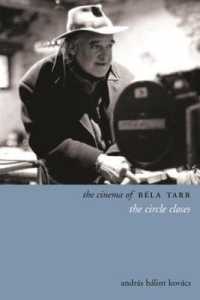- ホーム
- > 洋書
- > 英文書
- > History / World
Full Description
We tend to think of numbers as inherently objective and precise. Yet the diverse ways in which ancient Greeks used numbers illustrates that counting is actually shaped by context-specific and culturally-dependent choices: what should be counted and how, who should count, and how should the results be shared? This volume is the first to focus on the generation and use of numbers in the polis to quantify, communicate and persuade. Its papers demonstrate the rich insights that can be gained into ancient Greek societies by reappraising seemingly straightforward examples of quantification as reflections of daily life and cultural understandings.
Contents
Acknowledgements
List of Illustrations and Tables
Abbreviations
Notes on Contributors
Introduction
Robin Osborne, Robert Sing, Tazuko Angela van Berkel
Part 1 Numbers in Society
1 A Counting People: Valuing Numeracy in Democratic Athens
Lisa Kallet
2 The Appearance of Numbers
Robin Osborne
3 Punishing and Valuing
Steve Johnstone
4 Ten Thousand: Fines, Numbers and Institutional Change in Fifth-Century Athens
Josine Blok
5 Numeric Communication in the Greek Historians: Quantification and Qualification
Catherine Rubincam
Part 2 Communicating with Numbers
6 Creative Accounting? Strategies of Enumeration in Epinician Texts
Daniel Mahendra Jan Sicka
7 Hidden Judgments and Failing Figures: Nicias' Number Rhetoric
Tazuko Angela van Berkel
8 Performing Numbers in the Attic Orator
Robert Sing
Part 3 Conceptualising Number
9 Numbers, Ontologically Speaking: Plato on Numerosity
George Florin Calian
10 Doing Geometry without Numbers: Re-reading Euclid's Elements
Eunsoo Lee
Index







